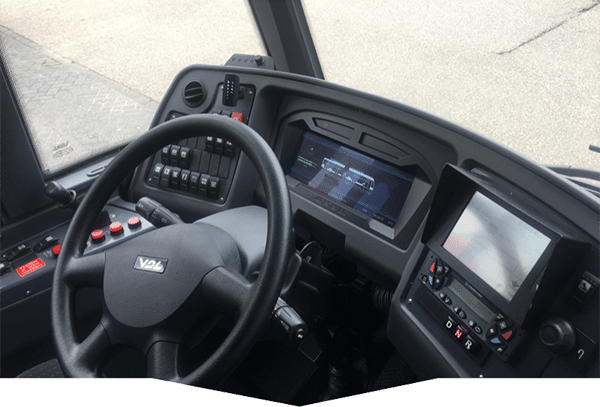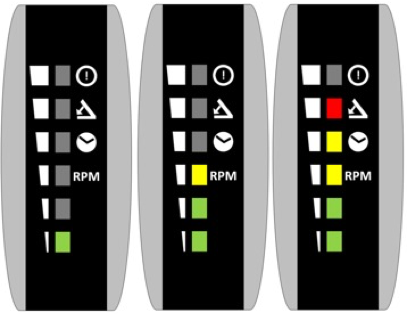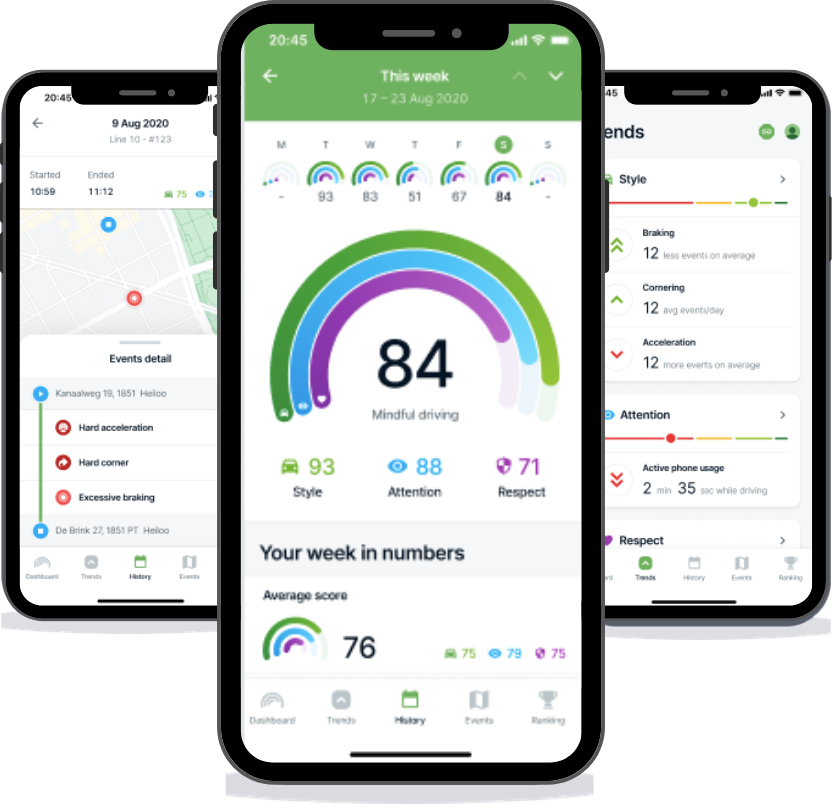
Utrecht, 1 October 2019 –Terberg Business Lease Group and Royal HaskoningDHV conducted a study among a group of car drivers to assess the effectiveness of six different systems and interventions that would promote safe driving.
Analysis showed that in only one group there was a statistically significant improvement in driving behaviour: giving immediate feedback through real-time driving tips (provided by Sycada). With this feedback, drivers were able to better anticipate traffic and noticed that they were driving more sustainably and safely. This was also reflected in the analysis. No statistically significant differences were found for the other solutions.



The display is mounted on the dashboard in the vehicle and provides driving style cues to drivers while driving. The display has configurable LEDs and feedback profiles can be set per vehicle type (bus, truck, van, car).
Furthermore, a distinction can be made in the type of feedback between fossil (eg engine idling) and electrically (eg battery power draw) powered vehicles.
In the Smartphone app, drivers can access their driving performance per day, week or month. Depending on the number of measuring points that are used, different ‘performance rings’ will be shown. The challenge is to keep taking a step forward or to maintain an already achieved master level.
When used as a supplement, DriveTag also provides real-time feedback on driving style while driving.


An ‘EFFICIENT AND SAFE’ driver has a driving style score of A to C. You drive consciously, take others into account and anticipate well in traffic. You have a controlled way of accelerating and braking and you respect the traffic rules.
A ‘NEAT BUT CAN BE BETTER’ rider has a D score. You are generally aware of the traffic around you, but you can improve your driving style on one or more specific points.
A ‘WASTEFUL AND UNSAFE’ driver has a driving score of E to H. You more often push the limits of your car and you may find the traffic rules a little less important. You often accelerate hard and often brake abruptly. You might call this a ‘sporty’ driving style yourself, but your risk of damage will go up considerably due to this driving style, along with your fuel consumption and costs.